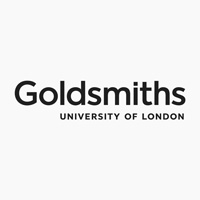fees waived
Computer Science (Artificial Intelligence and Data Science), BSc (Hons)
Goldsmiths, University of London, United Kingdom
Subject ranking
UK / THE 2025 56th
UK / QS 2026 61st
UK / CUG 2026 71st
Costs
food & rentS$24.9K / year
Entry requirements
Scholarships
Limited quantity
Information
Code
Intakes
Website (External)
Programmes
Information
Duration
2028
This BSc in Computer Science (Artificial Intelligence and Data Science) develops a specialist understanding of key conceptual and technological issues in AI and data science computation. Students will master cutting-edge machine learning models, their theoretical foundations, and practical applications, including deep learning neural networks. The program emphasizes ethical and social implications, data extraction techniques, and hands-on projects creating web and mobile applications, data visualisations, and games. An optional industry placement in the third year enhances skills and career prospects.The curriculum includes compulsory modules across three years, such as Introduction to Programming, Algorithms, Artificial Intelligence, Neural Networks, Machine Learning, and Data Mining. Assessment involves coursework, examinations, group work, and projects, with the option to earn a 'with work experience' endorsement through the placement year.
Year 1 In your first year, you'll take the following compulsory modules: Introduction to Programming User Experience and the Web Logic and Computer Architecture Computing Project 1 Graphics 1 Algorithms 1 Identity, Agency & Environment 1 Identity, Agency & Environment 2 Year 2 In your second year, you'll take the following compulsory modules: Software Development and Design Computing Project 2 Object Oriented Programming Data Programming for Artificial Intelligence Algorithms 2 Fundamentals of Computer Science The Goldsmiths Elective Optional modules You'll then take 2 optional modules from the following list: Networks and Operating Systems Information Security Goldsmiths’ Social Change Module Optional placement year Our degrees include an optional industrial placement year after the second year of study. You'll be responsible for securing a placement, but we can support you through this process. The industrial placement year is a great opportunity for you to gain work experience, build confidence and contacts, develop your skills and industry insight, and enhance your career prospects. You'll be supported throughout your placement year by a placement tutor, who will provide you with guidance and liaison between you and your employer. Although we encourage you to take the opportunity of a placement year, you can also complete your degree in three years. Year 3 (or year 4 with placement year) In your final year, you'll complete the following compulsory modules: Final Project in Computer Science Artificial Intelligence Neural Networks Machine Learning Data Mining You'll then use your remaining 15 credits to take an optional module from a list provided annually by the Department of Computing. *Please note that due to staff research commitments not all of these modules may be available every year.
A local representative of Goldsmiths, University of London in Singapore is available online to assist you with enquiries about this course.

